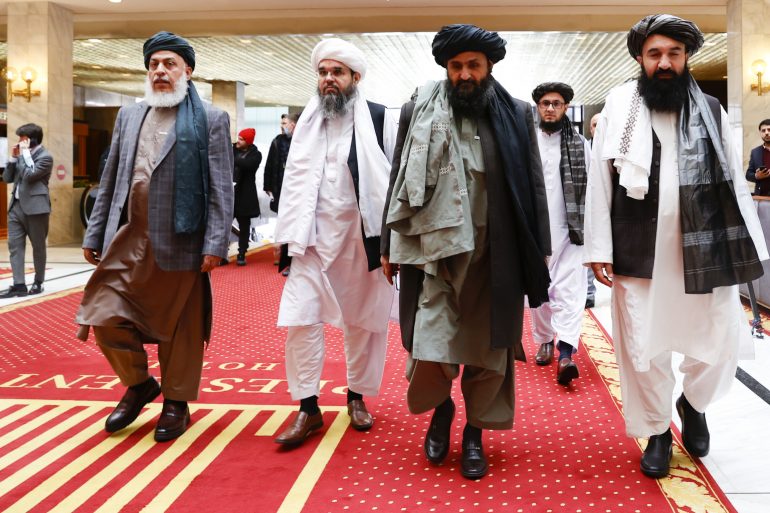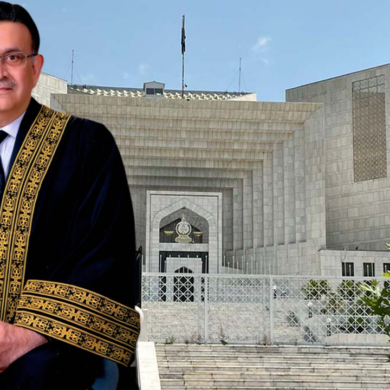Since the re-establishment of Taliban control in Afghanistan, Moscow has faced a difficult decision: how to regain its regional influence following the U.S. military withdrawal while keeping a safe distance from internal Afghan disputes.
Andrei Serenko, the head of the Moscow-based Center of Contemporary Afghan Studies said, “Afghanistan itself is not of interest to Russia. Russia wants to use Afghanistan without getting involved in Afghanistan.”
Russia’s gamble will be put to the test on Wednesday (20th October) when it hosts Taliban envoys for global discussions on Afghanistan’s security and political situation. Russian President Vladimir Putin has warned that there should be “no rush” to accept the Taliban as Afghanistan’s rulers.
Spokesman Zabihullah Mujahid said in a statement Tuesday that the Taliban leadership will attend the meeting to present its “point of view.” Taliban officials have traveled to several countries since their takeover of Afghanistan two months ago in a bid to gain international legitimacy, in part to avoid an economic disaster.
US officials met with a Taliban group in Doha, Qatar, earlier this month to address security concerns and safe passage for people trying to leave the country.
The Moscow talks, in various formats, aim to be substantially larger, with China, Pakistan, India, and Iran set to participate. Despite being invited, the United States will not be present.
Zamir Kabulov, Russia’s presidential representative for Afghanistan, said on Friday that no major breakthroughs are on the table, but that “a serious dialogue behind closed doors” will take place.
According to a Russian Foreign Ministry statement, representatives from Russia, China, and Pakistan met on Tuesday and “expressed common desire in providing immediate humanitarian and economic aid” to Afghanistan.
Afghanistan faces international economic sanctions and reductions in development funding after the Taliban takeover as billions of dollars had previously been used to help the former government deliver basic services. Millions more Afghans could be pushed into poverty because of the changes, which could further destabilize Taliban control.
During prior international trips, the Taliban has been confronted with questions about past human rights violations and draconian restrictions on women and girls.
Serenko noted that Russia still feels the sting of the humiliating withdrawal of Soviet forces from Afghanistan after a 10-year occupation in 1989, and that Moscow wants to give the impression of a primary mediator in Afghanistan issues.
However, he stated that Russia’s prime objective is to use the new regional security worries to expand its influence in Central Asia, an area where Moscow competes with Beijing for influence.
As the Taliban rushed into Kabul in August, leaving US-backed Afghan forces in disarray, Russian armored vehicles appeared at the Afghanistan-Tajikistan border for military drills, signaling Moscow’s ability to fill the region’s security hole now that the Americans have left.
Russia’s “Central Asian partners” have told Moscow that they do not want US military units stationed on their soil, according to Foreign Minister Sergei Lavrov. The US military retains partnerships with various Central Asian countries, but the temporary footholds in Uzbekistan and Kyrgyzstan established after the terrorist attacks of September 11, 2001, are no longer in place.
After regaining power, Moscow adopted a more friendly attitude toward the Taliban. Russia was one of four countries that did not evacuate diplomatic personnel from Kabul right away. Dmitry Zhirnov, the country’s ambassador to Afghanistan, claimed at the time that “the current situation in Kabul is better than under Ashraf Ghani,” the country’s former president who fled the country.
In the days following the Taliban takeover, Putin urged other countries to create good neighbor relations with Afghanistan’s new government. However, he stated this week that he doubts the Taliban will put a stop to drug production and that the threat of terrorism in the region has grown. Recent bombings in Afghanistan have fueled fears that the Taliban may be unable to contain other militant and terrorist groups, particularly the Islamic State.
Officials from Russia have stated that they are planning to send humanitarian aid to Afghanistan, but it is believed to be minimal in comparison to other countries’ financial assistance. The Taliban is still on Russia’s list of terrorist organizations that are prohibited.
“We recognize that we have to communicate with them,” Putin said at a virtual summit of former Soviet republics on Friday. “But there is no need to jump the gun.”
Andrei Serenko said, “This conference is not about Afghanistan. It’s all about Russia. Russia wants to show the Americans that without Russia, the Afghanistan problem won’t be solved.”



